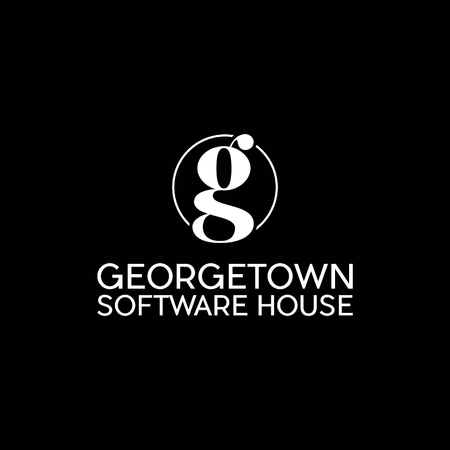Distributing Movies

Gower Street Analytics is an analytics company working in the film industry. Gower Street provides a platform for major distributors of films to manage release dates, helping them to decide exactly when a film should be released.
They use complex algorithms built in Clojure to simulate the performance of box offices around the world, trying out various release dates for movies. These simulations take into account population demographics, release dates and the expected performance of other movies.
I chatted with Gower Street co-founder Dimitrios Mitsinikos and his team to discuss their decision to use Clojure to power their business.
Jon: What is the goal of Gower Street?
Dimitrios: We want to build the analytics platform that we think is missing in the industry. There are many companies doing film analytics, but most are only doing green light comparisons; looking at how well a film will do based on which actors are in it, for example.
We instead look at what films are being released around the same time as others, alongside the likelihood of a film hitting its estimate based on a variety of data points. We also monitor the market closely, improving the accuracy of our predictions as we get closer to a film’s release date.
All the large studios are now using our software, and we are in the process adding more countries to the platform.
Jon: How did Gower Street get started?
Dimitrios: We have a lot of experience in the movie industry - for the last 15 years I’ve worked in analytics at Universal Studios. We started two years ago, spending a lot of time on research and development, processing data feeds to track how movies are performing across the world, and figuring out exactly what platform the industry might need.
Jon: So if a studio wants to put out a film, then they can go to you to find out when would be the optimum time?
Dimitrios: Yes, that’s right. A studio can go online using our system and see what the film estimates are for the next 12-18 months. They can play with scenarios, for example: “Let’s swap Star Wars with Suicide Squad and see how much more or less each film might make.”
We create algorithms that accurately model the box office, so customers can see the impact of choosing different release dates and monitor what is happening in a very competitive environment. For example our models show that one film could have made an extra $2.5m by releasing on the date that our system suggested.
It’s fascinating that even in a mature market like the UK, you can still significantly increase revenue by using analytics in this way.

Technology choices
Jon: Why did you choose Clojure to power the business?
Dimitrios: The core of our business is the simulation of the global box office. It’s all about processing complex and constantly changing data as fast as possible. When we first started our simulations could take five hours. It’s now about a minute. We have found functional programming a great fit for our team, especially those with a scientific background.
Team: Clojure might seem an unusual choice for performance-intensive simulation work; but it’s working out well. It’s a great fit for the problem, performant enough for our needs and it’s extremely expressive and readable, allowing us to iterate quickly on complex simulation algorithms.
Jon: How do you get it so fast?
Dimitrios: Through lots of optimization and the ability to easily deploy using Amazon AWS.
Team: We’ve had to think outside the box, just throwing more machines at the problem might help, but then we’d have more problems with managing a distributed processing infrastructure e.g. a Hadoop cluster. To say more would be to enter a larger discussion of simulation and stochastic models that we probably don’t have time for here!
Jon: How did you go about adopting Clojure?
Dimitrios: Initially we started with Racket. Racket was nice and functional, but it was lacking support in certain areas. The developers came up with the idea to move to Clojure.
Team: Because the webapp for a previous iteration of our product was built in Racket, we were no strangers to parentheses. We tried Clojure for certain parts of the system at first, and it worked out very well. It has a larger ecosystem than Racket, so we’ve ended up adopting it across our stack. The usual reason of it works well with our existing Java systems wasn’t a factor for us.
Dimitrios: As we’ve grown as a business we’re now using Clojure for almost everything - plain Clojure for back-end services and ClojureScript on the front-end.
Team: While we’ve gotten a lot from Clojure, we’re not obsessive, and recognize that it isn’t the best tool for every job. We’ve been experimenting with Serverless recently and this is one area where a lighter-weight solution may work better.
Jon: What is your team size?
Dimitrios: Our development team is currently five people and will be six shortly. We’re a fully remote team, scattered across the UK.
Team: You might think that remote would be an issue, but we’ve developed a way of collaboratively working together using appear.in video conferencing, Slack and tmux - we pair-program remotely much of the time and although we’re close to XP we’d prefer to refer to our team as agile with a small a.
We get together for two days a month on-site in London as a team to work, eat and play - it helps us see each other as people rather than just co-workers. We have a flat-hierarchy and use a consensus-based decision-making model, so we’re not exactly your normal corporate sweatshop in this regard; we very much agree with Dan Pink’s ideas about Autonomy, Mastery and Purpose.
Hiring
Jon: Tell me about hiring?
Dimitrios: The team has grown organically, and based on word of mouth we’ve hired people. From my experience, it’s best for the development team to grow slowly, there’s a risk with teams of growing big too quickly.
Team: We’re actively creating an environment which promotes employee well-being and we take intentional steps to reduce inherent bias and to promote diversity. We focus on people and robust discussions rather than processes or tools.
We don’t require people to know Clojure to join us; just to have valuable experience to contribute and a willingness to learn and be open to new things. We’ve found that Clojure is a big draw for us - it attracts the kind of people who are more likely to see things as a holistic system rather than a collection of classes.





